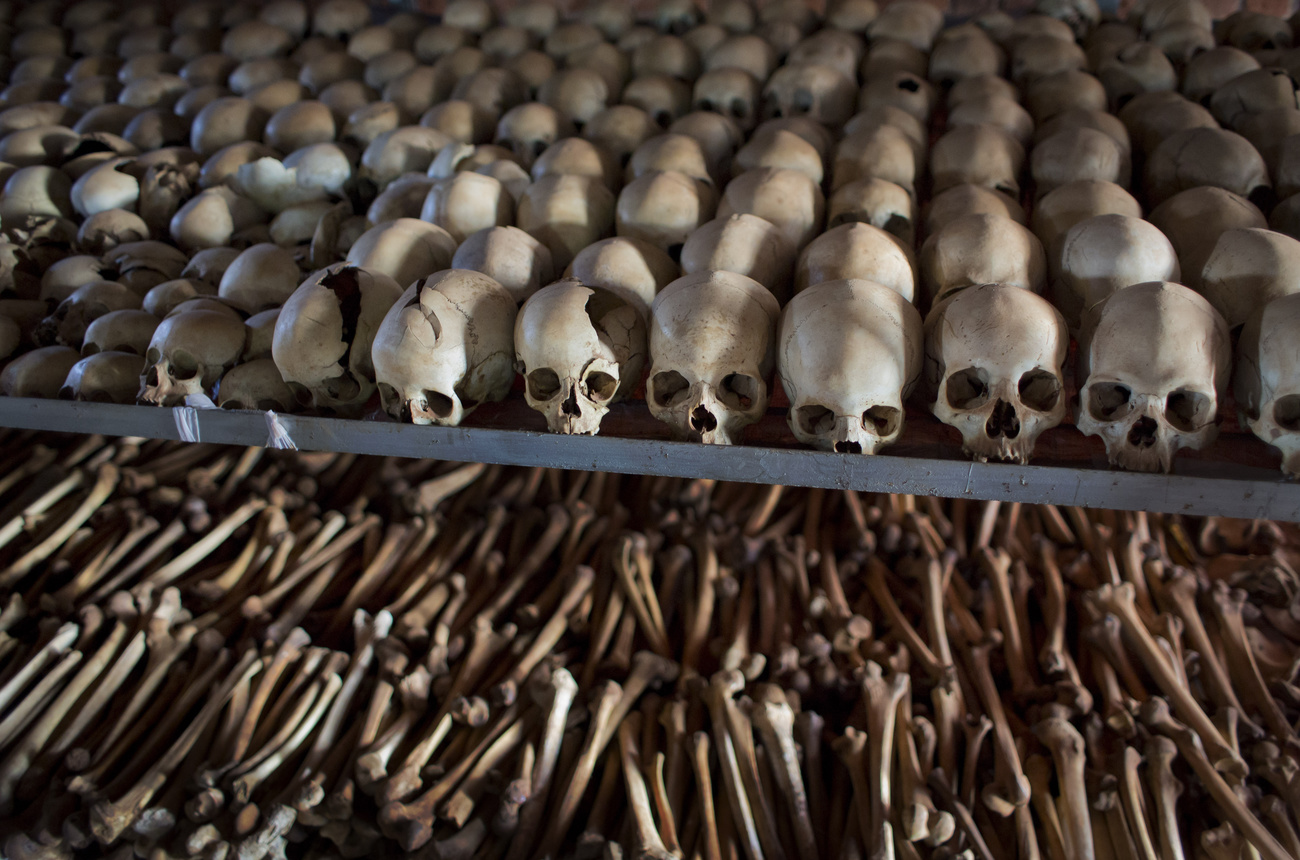
Swiss report to probe non-arrest of Rwandan genocide suspect

Switzerland is to examine why Rwandan genocide suspect Félicien Kabuga escaped arrest in the Alpine state despite being accused of serious crimes.
Kabuga is suspected of having been one of the main masterminds behind the genocide in Rwanda in 1994, which left hundreds of thousands dead.
This follows a postulate by Green Party parliamentarian Christine Badertscher, calling for such a report. Badertscher said she had realised during a parliamentary visit to the African country that the Kabuga case was still very much on the minds of the Rwandan population.
Kabuga came to Switzerland in 1994 but was not arrested but deported. As the Federal Council wrote last year in a response to an interpellation by Badertscher on this subject, the Federal Department of Foreign Affairs “requested” that the Department of Justice and Police consider arresting Kabuga.
However, the latter decided to deport Kabuga. According to the Federal Council, the legal situation for an arrest was different at the time than it is today, and those involved at the time were bound by the law in force at the time.
Whether Kabuga’s arrest was effectively unjustifiable in view of the legal and factual situation at the time could only be assessed in the context of a detailed historical reappraisal. Parliament is now calling for this reappraisal; the Federal Council was in favour of accepting the motion.
Kabuga was able to evade justice for 25 years. He was only arrested in Paris in 2020. Recently in The Hague, the UN tribunal on the crimes committed in Rwanda in 1994 ruled that Kabuga, now aged 90, was not fit to stand trial due to dementia.
According to the indictment in The Hague, Kabuga had financed a Hutu militia and equipped it with weapons such as machetes. He also founded a radio and TV station that called for massacres of the Tutsi minority. At an initial court appearance, Kabuga rejected the charges as “lies”.
Translated from German by DeepL/mga
This news story has been written and carefully fact-checked by an external editorial team. At SWI swissinfo.ch we select the most relevant news for an international audience and use automatic translation tools such as DeepL to translate it into English. Providing you with automatically translated news gives us the time to write more in-depth articles. You can find them here.
If you want to know more about how we work, have a look here, and if you have feedback on this news story please write to english@swissinfo.ch.

In compliance with the JTI standards
More: SWI swissinfo.ch certified by the Journalism Trust Initiative

























You can find an overview of ongoing debates with our journalists here . Please join us!
If you want to start a conversation about a topic raised in this article or want to report factual errors, email us at english@swissinfo.ch.